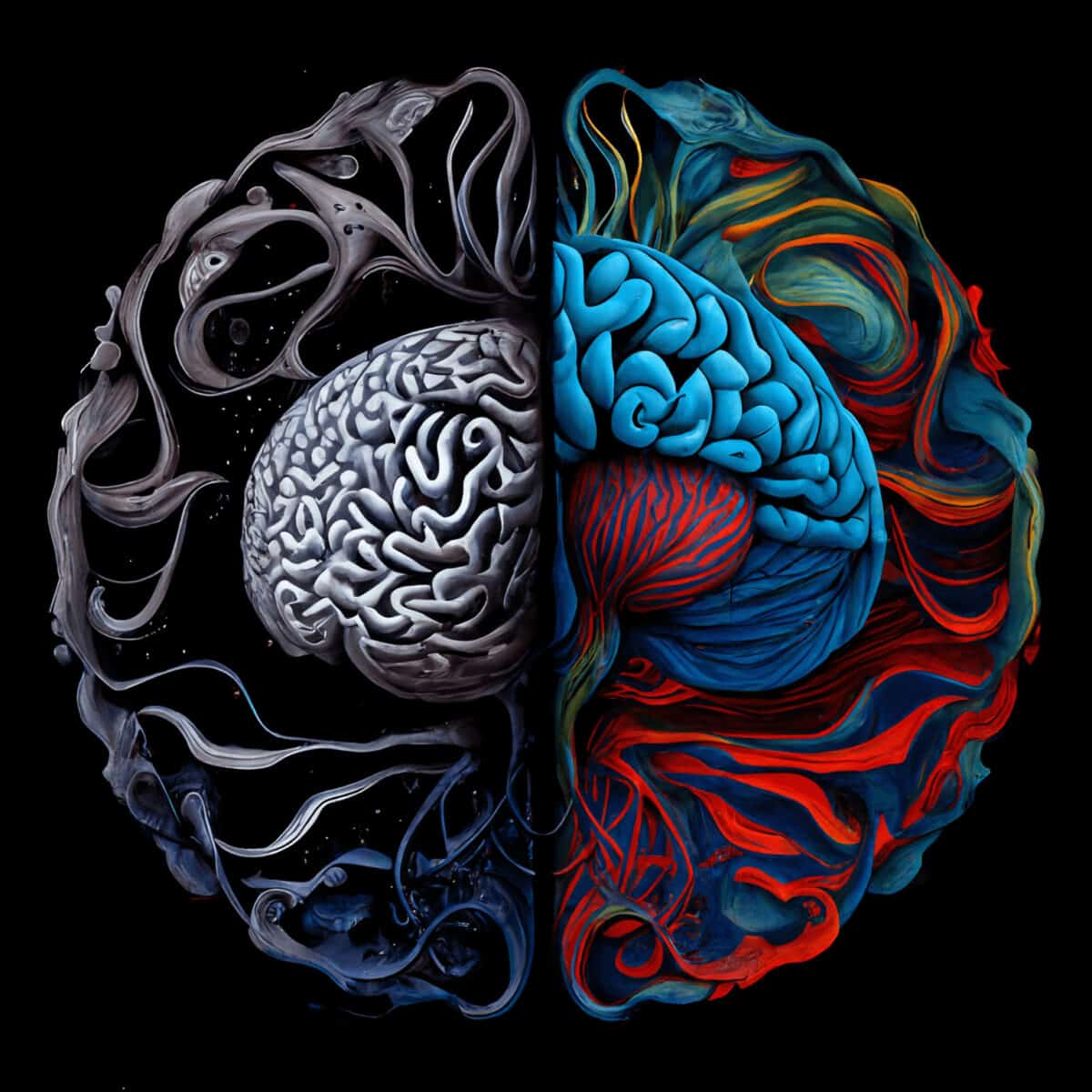People with bipolar disorder think differently. It doesn’t mean that they’re unpredictable, unstable, or unreliable, as common misconceptions would have you believe.
If you have bipolar disorder, you can manage your thought patterns through therapy, education, medication, and other techniques.
Bipolar Mood Shifts
To better understand bipolar thought patterns, it helps to know that bipolar is a mood disorder. Mood disorder involves intense shifts in mood, energy levels and thinking patterns.
Mood shifts with bipolar disorder can affect your ability to process information and make rational decisions. It can also make it difficult to communicate effectively with others. Sometimes, the mood shifts are rapid and frequent. At other times the moods can be stable for long periods.
Before unpacking how bipolar disorder affects your thoughts, it’s important to mention: Being bipolar does not mean being unhinged.
Bipolar has its cycles. You can absolutely learn to adapt to the different stages of thought that you experience. Recognizing which stage you are in and what tools help most in that stage is essential to managing bipolar disorder.
Common Thought Patterns Associated with Bipolar Disorder
Manic and depressive episodes have their own distinct thought patterns.
Racing thoughts usually tend to happen during bipolar mania.
Negative self-talk tends to be more common during bipolar depression.
A few of these types of thoughts can occur with both.
Manic Thought Patterns
The manic stage is often a high energy stage. When you are in a manic stage, you may have racing thoughts.
Your brain might jump from one thing to another so quickly that you easily get distracted.
Another common pattern is making loose associations in conversations with others. Racing thoughts also often lead to talking continuously without acknowledging other people.
The manic stage might also come with an inability to filter out unimportant information, making for long-winded discussion filled with unnecessary details.
Delusional thinking is also possible. Some people in the manic stage of bipolar disorder have delusions of grandeur and even experience hallucinations, such as the applause of a crowd.
Depressive Thought Patterns
The depressive stage is usually a low energy stage.
During bipolar depressive stage, you might be more vulnerable to negative self-talk. This can lead to suicidal ideation or thoughts of self-harm. You may also find that your thoughts are so crowded it prevents you from speaking.
Another thought pattern associated with bipolar depression is thought blocking. When this happens, you may stop speaking mid-sentence, your train of thought halted in its tracks. Bipolar depression can also lead to rumination, meaning that your vision narrows down to something that prevents you from seeing the bigger picture.
Rumination is often associated with guilt and a sense of hopelessness.
It’s important to keep in mind that manic and depressive stages are cyclical. Each one requires a different set of tools. But you can learn to recognize the patterns and apply the right techniques at the right times.
Looking For Therapy?
Start Healing Today.
212-960-8626
How to Deal with Bipolar Thought Patterns
Treatment for bipolar disorder usually consists of some combination of the following:
- Therapy: A licensed therapist can provide you with an accurate diagnosis (if you have not already been diagnosed with bipolar disorder). They can also teach you skills for managing rumination, racing thoughts, and other negative thinking patterns. Therapist can also teach you how to de-escalate from a manic episode, reduce anxiety otr stress, and quiet your mind.
- Education and support: Take the time to learn about bipolar disorder so you can recognize your symptoms and know what causes them. Also, educate friends and family so they can lend you their support.
- Self-reflection: Remember that a technique that works for one person may not work for someone else. It’s important to try out different things and not get discouraged when something doesn’t work. Learn what works best for you.
- Medication: Some medications can help stabilize mood. Others can be taken temporarily during the intense stages related to bipolar disorder. A psychologist can help you figure out which would be best for you. Plant medicine may also be a potential solution, offering natural alternatives that can support emotional balance and overall well-being.
Working with a therapist can be incredibly helpful when dealing with bipolar thought patterns. At Manhattan Mental Health Counseling, we offer online therapy with licensed professionals to help you better understand and identify the stages of bipolar disorder, manage negative thinking properly and equip you with coping tools to manage manic and depressive episodes. Call us today or contact us online to learn more about our services or book an appointment.

